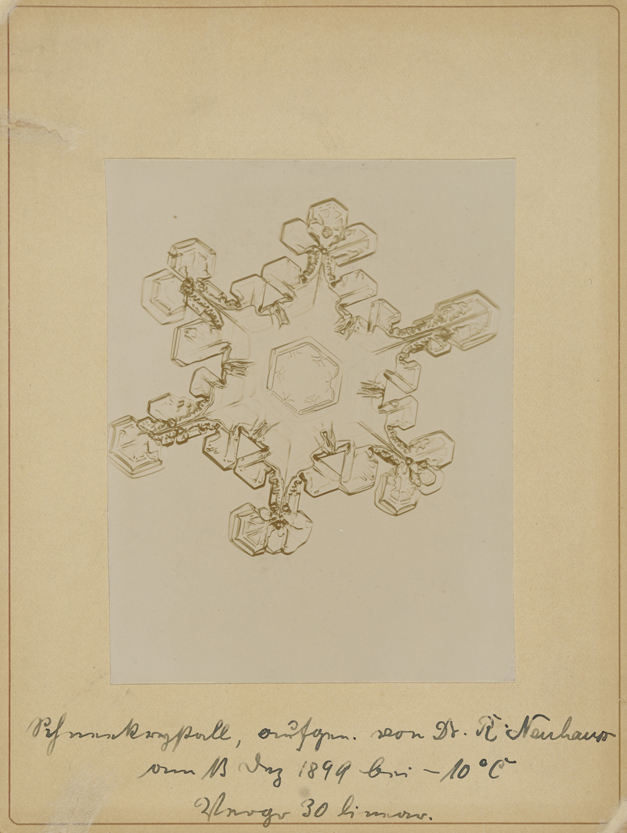Week 52 - 2015

Dr. Richard Neuhauss, Snow chrystal, photographed on December 13 1899 at -10 degrees Celcius. Albumen print. Preus museum's collection
Dreaming of a white Christmas
Things aren't always what they seem. Snow crystals, for example, usually appear together with many others and act to be a uniform white mass. But we understand that no two crystals are identical. The snowflake's intricate, lovely symmetry has a particular ability to provoke curiosity.
Water molecules in ice crystals arrange themselves in a definite pattern: hexagonal prisms. This is why all snow crystals have six "arms" or dendrites and why the angle between two arms is always 60 degrees. Think of that the next time you clip out a paper snow crystal! That may be as close as we'll get to a white Christmas this year.
Cameras coupled to a microscope become a kind of prosthesis which lets our eyes see the world with new vision. The inscription on this picture of a snow crystal indicates that it was taken 13 December 1899 at -10 degrees Celsius (14 degrees Fahrenheit); we see the perfectly symmetrical hexagonal prism. The crystal has melted long since, but you can still see the impression it left in Neuhass's camera at the Preus Museum, which sends season's greetings to all followers of this website!




